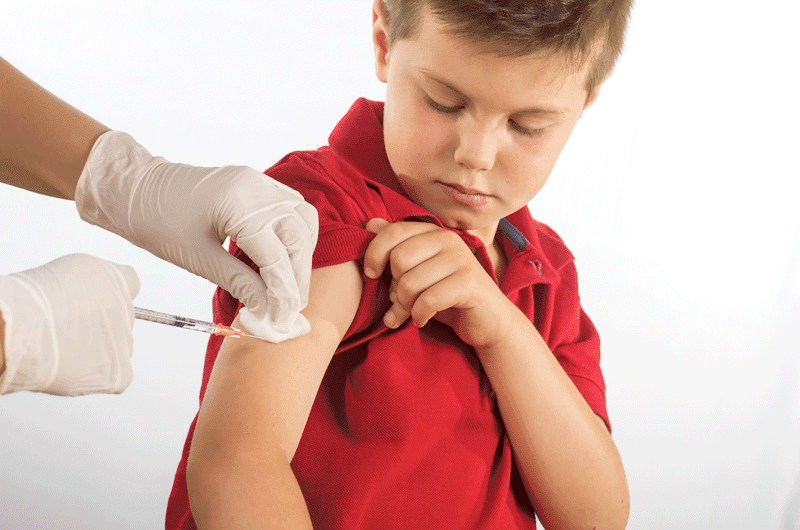Back-to-school Health Check – Plan Your Child’s Annual Physical and Immunizations Now
Academic success depends on numerous factors, but not all parents consider the impact of good health on school performance.
“A good student is a healthy student,” said Dr. John O’Reilly of Baystate Children’s Hospital. “Since the American Academy of Pediatrics recommends yearly well visits for children starting at age 3 through 18, scheduling a back-to-school physical each year is a good way to meet that goal,”
O’Reilly, who is also chief of Baystate General Pediatrics, said the time is running out to schedule those back-to-school checkups and sports physicals, as pediatrician offices face an influx of calls to schedule appointments and get the proper paperwork completed before the school year begins.
“As pediatricians, we want to partner with parents to help their children be successful students,” he said. “Are they generally healthy? Will they have any problem seeing the board? Is their hearing OK, so they don’t miss what the teacher is saying? Do they have any attention issues? We want to address all these issues before they enter the classroom.”

In addition, he added, “if your child has asthma or a peanut allergy, or any other chronic condition, we will need to develop an action plan to share with the school nurse. Paperwork must also be completed for any prescription medications your child may need to take while at school.”
Then, of course, there is what almost every child dreads — getting a shot.
“Parents should check with their child’s doctor, school, or the local health department to learn about the immunization requirements in their state or county,” said Dr. J. Michael Klatte, a pediatric infectious-diseases specialist at Baystate Children’s Hospital.
By state law, he noted, children must be up-to-date on their required immunizations in order to start school. The 2018-19 immunization requirements as listed by the Massachusetts Department of Public Health include:
• Two prior doses of measles, mumps, and rubella (MMR) vaccine for entry into any grade level ranging from kindergarten through college graduate studies (including health science students), unless one has documented evidence of immunity to all three infections;
• Two doses of varicella (chicken pox) vaccine for entry into any grade level ranging from kindergarten through college graduate studies (including health science students), unless one has documented evidence of immunity or a history of varicella confirmed by a physician; and
• One dose of Tdap for entry into any grade level ranging from grade 7 through college graduate studies (including health science students).
The Tdap booster dose — recommended by the Centers for Disease Control and Prevention (CDC) for preteens at age 11 or 12 — provides protection against tetanus, diphtheria, and pertussis (whooping cough). Children initially receive protection against these bacteria with the DTaP vaccine, which loses its protective effectiveness over time. As a result, preteens and teens need to get a Tdap booster dose. This is important not only to protect them, but also those around them — especially babies and the elderly.
According to the CDC, all preteens 11-12 years old should receive one dose of Tdap vaccine, one dose of meningococcal vaccine (to help prevent against bacterial meningitis), and two doses of HPV vaccine (for those who get their first dose of HPV vaccine between ages 9 and 14) to be fully protected against these serious diseases. A second dose of meningococcal vaccine is also necessary at age 16. The Massachusetts DPH and the CDC urge healthcare professionals to give a strong recommendation for all of the adolescent vaccines recommended for boys and girls ages 11-12, and to recommend the HPV vaccine as they would the Tdap and meningococcal vaccines


Comments are closed.